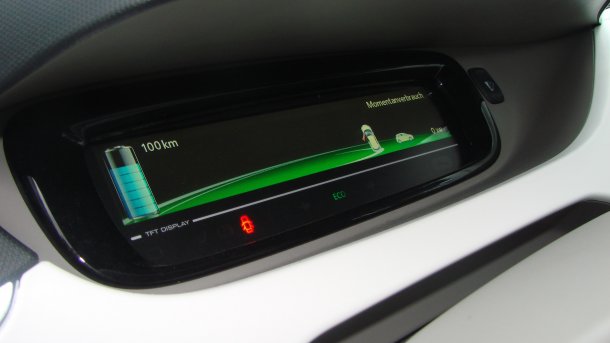De-globalisation: dependence on China remains despite new battery factories
In our series on de-globalisation, we shed light on German and European dependencies on raw materials and supply chains.

(Hier finden Sie die deutsche Version des Beitrags)
After a few half-hearted attempts to produce battery cells themselves, German carmakers relied completely on non-European suppliers for years. But long before the Ukraine war, this proved to be unwise. In 2019, for example, Volkswagen had to buy gigawatts of batteries on the world market because its regular supplier Samsung was weakening. No wonder that Wolfsburg is now one of the pioneers of its own cell production with a plant in Salzgitter.
In addition, there is technical rethinking. "Batteries used to be considered something like the tank," says Falko Schappacher, commercial-technical director of the MEET Battery Research Centre at the University of Münster, "But they are actually something like the engine" - in other words, decisive for the performance and character of a car.
Battery and cell factories shoot up from the ground
With billions in aid from the EU and member states, battery and cell factories are now being built all over the continent. The first successes are already emerging: in 2021, Germany imported more lithium-ion batteries from Europe than from China for the first time, reports the German Electrical and Digital Manufacturers' Association. They come mainly from Poland.
By 2030, the Fraunhofer Institute for Systems and Innovation Research expects European cell production to increase tenfold to around 1.5 terawatt hours per year. Just under 400 gigawatt hours of this will come from Germany - enough for around 6.5 million e-cars.
Shenzhen, Yantian Port
(Bild: zhangyang13576997233 / Shutterstock.com)
The past months have painfully shown that dependence on resources comes at a high price. But can the wheel still be turned back? So let's take a look at the supply situation.
How far Europe could supply itself with strategically important raw materials and what that means for industry is what we want to explore with a raw materials article series.
- New Series: De-Globalisation - How Independent Can Europe Be?
- De-globalisation: Can Europe supply itself with lithium?
- Rare earths and platinum group metals: Can Europe be self-sufficient?
- De-globalisation: Can Europe supply itself with steel and aluminium?
- De-globalisation: Can Europe supply itself with copper?
- Cobalt: Can Europe supply itself with the important raw material?
However, only half of the new cell and battery factories are being built and operated by European companies. How, for example, the Chinese manufacturer CATL, which is currently building a large battery plant in Thuringia, would behave in the event of a conflict between Europe and the People's Republic is an open question.
Moreover, raw materials such as lithium, cobalt or nickel are almost exclusively sourced from non-European countries. Germany does have certain deposits of lithium, for example in the Upper Rhine Graben or in the Ore Mountains. "These deposits are already considerable," says Schappacher. "But their extraction is problematic from an environmental point of view." In Portugal, Scandinavia and the Balkans, new mines have therefore been delayed for years by protests and court cases. For years Carinthia has been hoping for a lithium mine for which the feasibility study is still not ready. Not to mention the factory to process the material.
"Canada has almost all raw materials"
To secure supplies, Mercedes-Benz and VW have agreed to cooperate with Canadian suppliers. "Canada has practically all the raw materials we need for battery production," VW board member Thomas Schmall told the Handelsblatt, "In the past, the big car manufacturers thought it was enough to buy cell factories. Today we know that we have to go much deeper into the value chain."
Mercedes-Benz wants to kill two birds with one stone through its partnership with the Canadian mining company Rock Tech: on the one hand, certified social and environmental standards are to counteract the bad image of car batteries. On the other hand, the raw materials are also to be refined in Europe. To this end, Rock Tech is building Europe's first lithium hydroxide factory in Guben, Brandenburg.
Expensive western battery cells vs. cheap e-cars from China
However, complete independence from China is not the right goal at all, car expert Ferdinand Dudenhöffer told "Der Spiegel", because that would create a split market of expensive Western cells and cheap Asian goods. The consequence: China could flood the world markets with significantly cheaper e-cars.
Another important resource is the skilled workforce. "We are doing quite well with young scientists," says Falko Schappacher from MEET. His institute alone trains around 60 to 80 doctoral students, who are often poached by industry even before they graduate. He also sees a great need for training technical personnel: "For people who have a lot of experience with coating machines, for example, a six-month training course would be enough to employ them in cell production." However, there are still no generally recognised training and further education concepts for this.
The upcoming issue of the MIT Technology Review also deals with the topic of deglobalisation. In various texts, we explore the question of the extent to which it is possible to reverse processes of deglobalisation. The new issue can be ordered in the heise shop from 28.9. and will be available in stores from 29.9.
(jle)